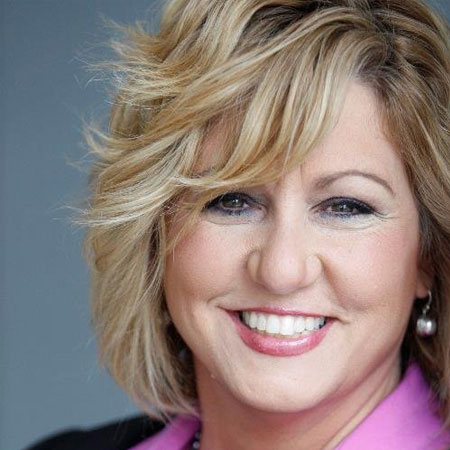There’s a reason that I devoted two chapters to networking and placed them in the elemental category “Inert Fundamentals” in my recently released book [which, hint hint, is being heralded as the perfect stocking stuffer for aspiring marketeers!] The reason — networking is fundamental to the success of many marketers in leadership positions. Networking is not just a source of future jobs (a good enough reason on its own) but it is also a source of gratification for the special CMOs that enjoy giving their time and energy to others. But don’t just take my word for it. Read my interview with Lisa Woodard, the CMO at Transamerica Brokerage. Lisa, as you will soon find out, is a giver, sharing her time with fellow CMOs and aspiring entrepreneurs in prison. It is little wonder why Lisa was a recent recipient of the President’s Circle Award from The CMO Club.
Drew: How important is having a strong peer network to doing your job well? Can you provide a specific example of some action you took as a result of your network?
On a scale of 1-10, I would say a strong peer network is at least a 9. With frequent transitions from company to company and vertical to vertical as the norm for most CMOs, just having experienced mentors to call is extremely valuable. Where I have learned the most is perhaps by hearing what others have tried that did not work – allowing me to avoid pitfalls early in my tenure with a given role. Specifically, I have been able to identify strong vendor relationships because of references given by my network that have provided value.
Drew: Have there been any unexpected benefits to your networking efforts?
The sharing of wisdom on “non-marketing” topics. Being a part of discussions both on the digital roundtable and at The CMO Club Summit on the topic of Work-Life Balance has been nurturing, affirming and also provided me with very practical tools to make sense of the almost constant craziness
Drew: Making time for networking is always a challenge. How much time do you invest in peer to peer exchanges and how do you rationalize this investment?
Probably 10% – and I have to be very adamant / defensive in carving out the time – there is always something that can come up back at the office. But I find the ROI to be quite high. My boss always asks, “ Was it worthy of your time?” the Answer with CMO club and networking is always a yes, as long as I set the boundaries. The no vendor selling aspect is truly helpful in that I am not spending the time wondering what the other person’s motives are. Lastly, once you rise to our level- keeping marketing skills fresh requires external input, it’s not solely being learned within the company. Networking gives me a chance to work on my business, not just in my business.
Drew: Effective networks are ones in which there is a lot of give and take and some would say, start with giving and the taking will follow. What’s your approach? How do you handle the takers?
My satisfaction comes even more from the giving than the taking. I just have to believe in the long term, those good reciprocal relationships will add value. That is why I work with the Prison Entrepreneurship Program. I get so much more than I give by sharing my experience and knowledge.
I have a great experience to share on this one: I interviewed a candidate for a marketing role that wasn’t quite a fit for the job, but I liked him and maintained contact with him. He had been a product marketing manager for a long time and had been laid off. With pre-digital skills , he actively transformed himself to learn all he could about social. He applied his social media knowledge and spoke at various groups of folks in transition, helping them optimize their Linked In profiles. In fact, he helped me fix mine when I was in transition. He was able to parlay that giving to others into paid consultancy and his own marketing business. I have even hired him and my clients love him. It was all about reinvention and paying it forward.
Drew: Looking ahead to 2016, what is the single biggest challenge that you’d like to overcome?
Our industry is in great need of re-invention in order to meet the needs of the consumer. I am excited to be part of significant industry change.

